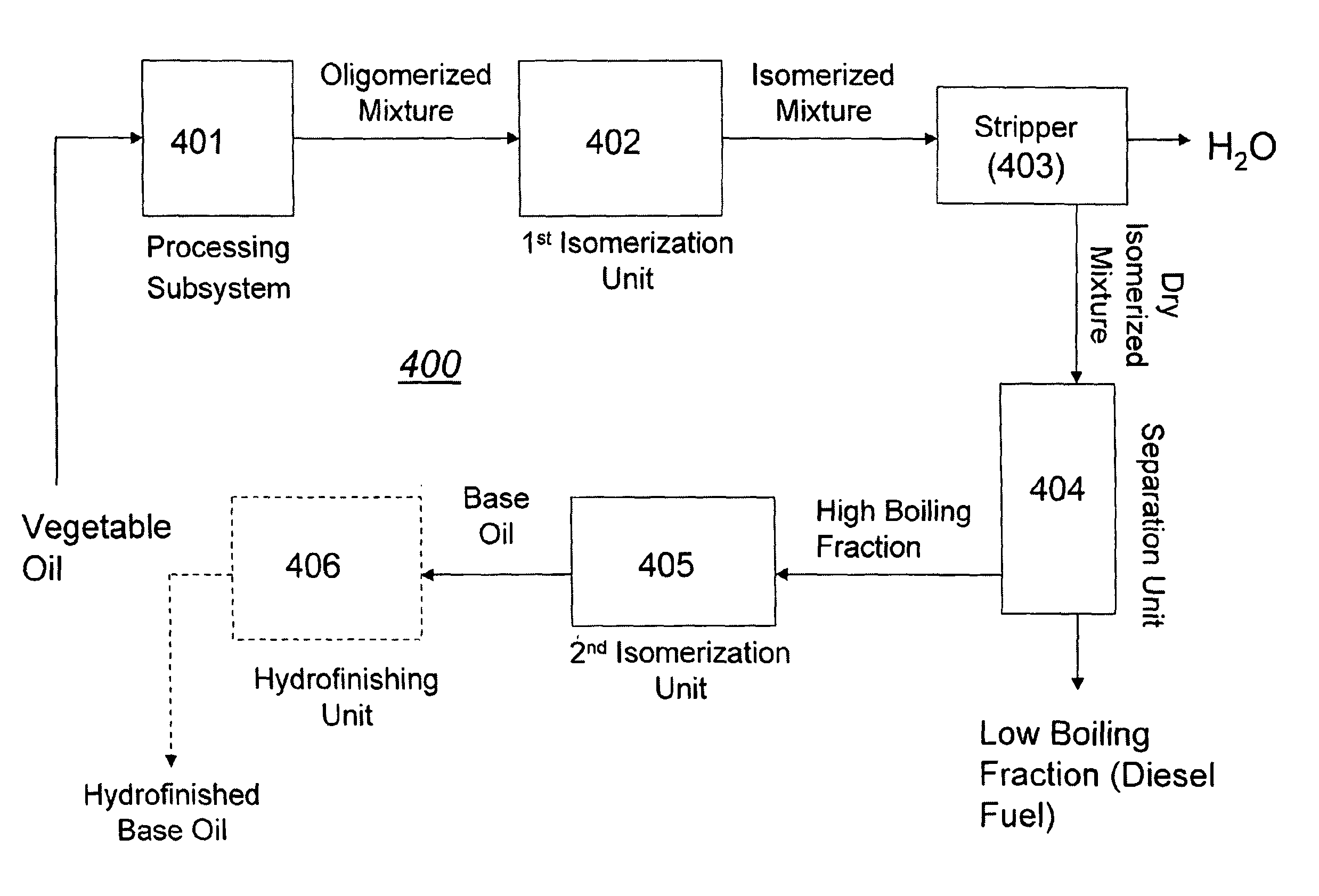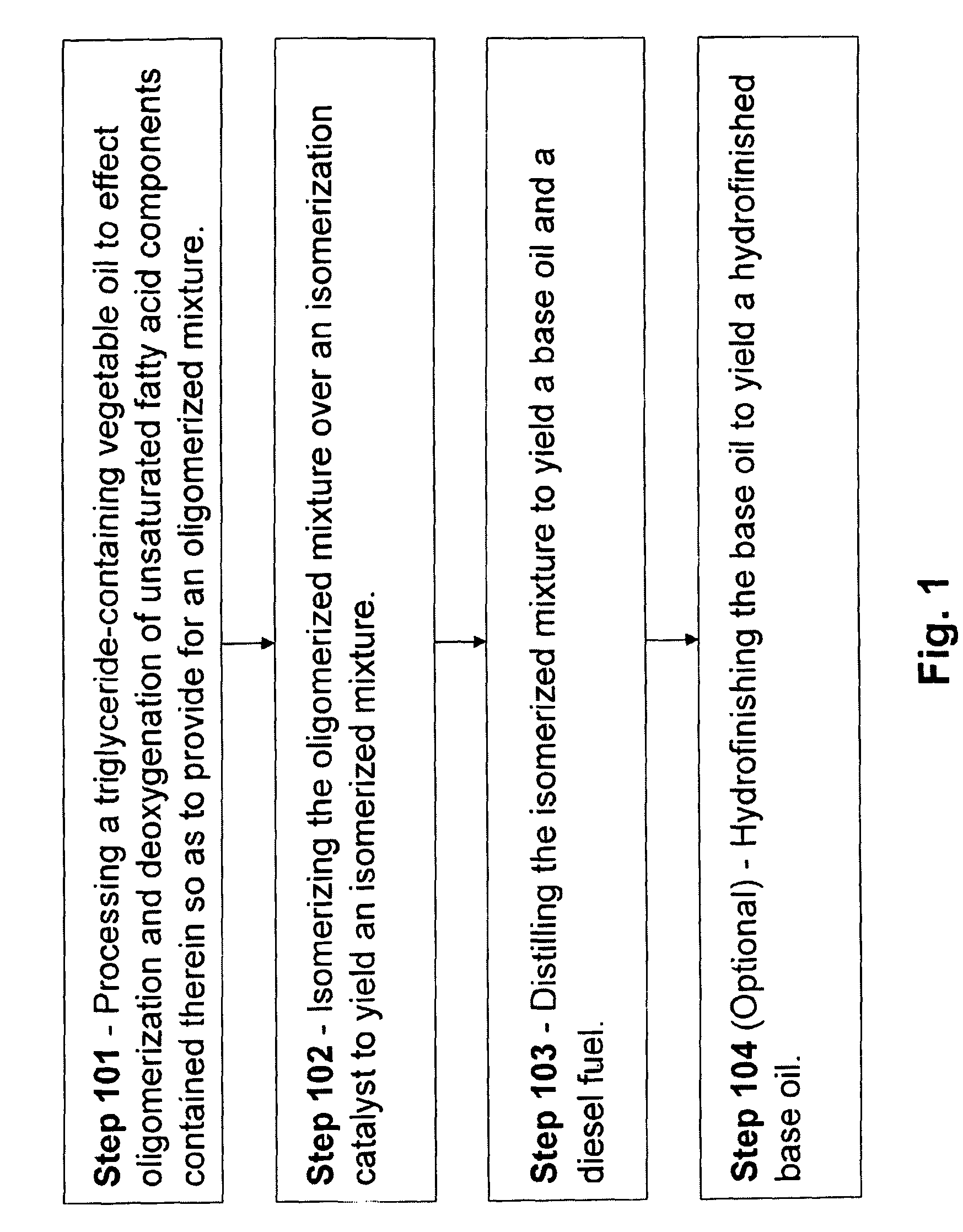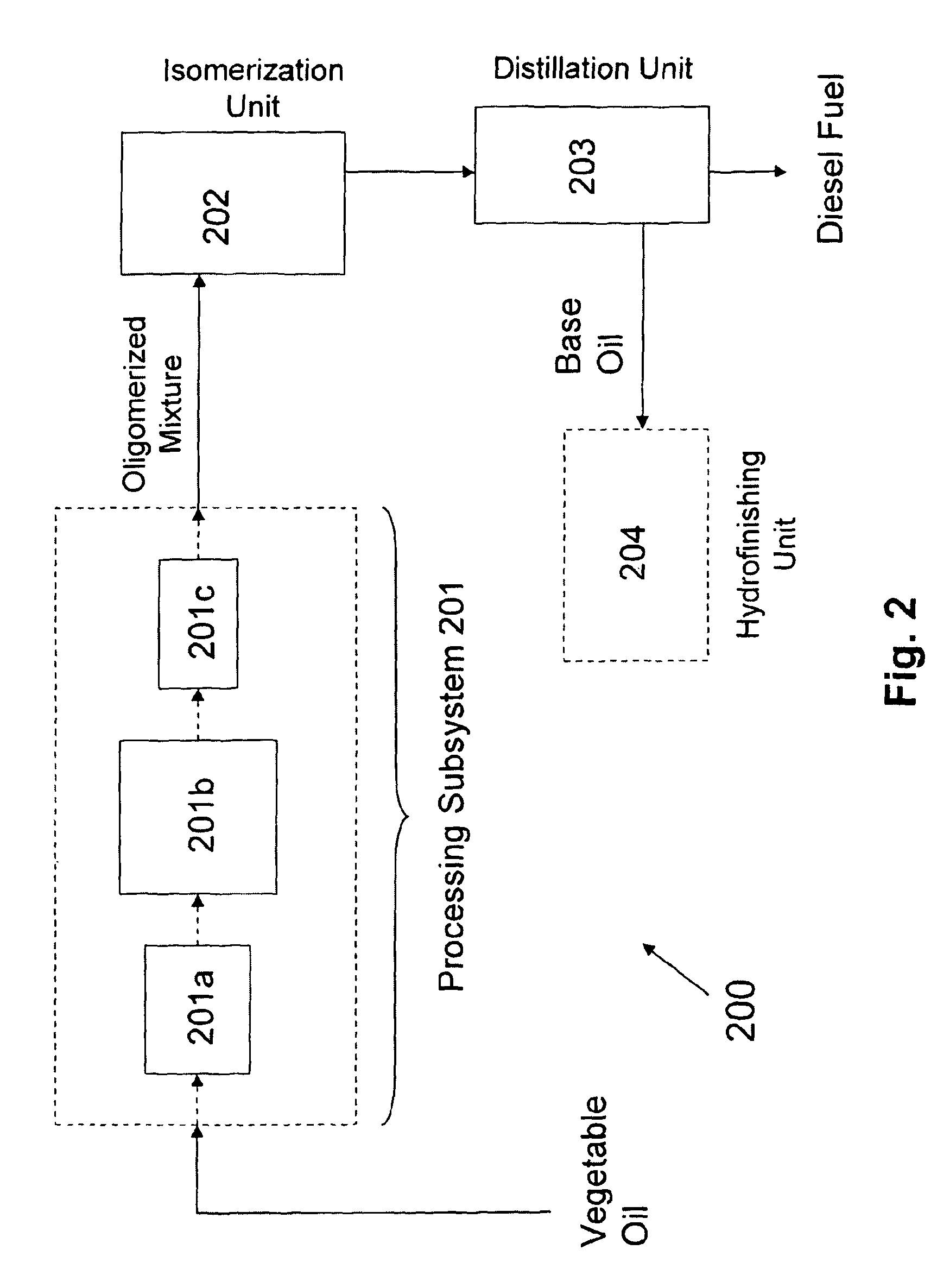Conversion of vegetable oils to base oils and transportation fuels
a technology of base oil and vegetable oil, which is applied in the field of fuels and lubricants, can solve the problems of affecting the use affecting the cold flow of conventional biodiesel fuels, and destroying carbon deposits on the engin
- Summary
- Abstract
- Description
- Claims
- Application Information
AI Technical Summary
Benefits of technology
Problems solved by technology
Method used
Image
Examples
Embodiment Construction
1. Introduction
[0018]Embodiments of the present invention are directed to methods (processes) and systems for processing triglyceride-containing, biologically-derived oils so as to effect oligomerization and deoxygenation of unsaturated fatty acid (carboxylic acid) components contained therein, en route to the production of base oils and transportation fuels (e.g., diesel fuel). Processing in such methods and systems effects at least a partial oligomerization (e.g., dimerization) of the fatty acid components. In some such methods and systems (Type 1), the processing proceeds via an initial hydrotreating, whereas in other such methods and systems (Type 2), the processing proceeds directly via an isomerizing step.
[0019]In view of the above-described limitations of the prior art, advantages of the methods and systems of the present invention include, but are not limited to, the generation of multiple product streams, and the ability to integrate one or more of these streams with tradit...
PUM
| Property | Measurement | Unit |
|---|---|---|
| wt. % | aaaaa | aaaaa |
| wt. % | aaaaa | aaaaa |
| temperature | aaaaa | aaaaa |
Abstract
Description
Claims
Application Information
 Login to View More
Login to View More - R&D
- Intellectual Property
- Life Sciences
- Materials
- Tech Scout
- Unparalleled Data Quality
- Higher Quality Content
- 60% Fewer Hallucinations
Browse by: Latest US Patents, China's latest patents, Technical Efficacy Thesaurus, Application Domain, Technology Topic, Popular Technical Reports.
© 2025 PatSnap. All rights reserved.Legal|Privacy policy|Modern Slavery Act Transparency Statement|Sitemap|About US| Contact US: help@patsnap.com



